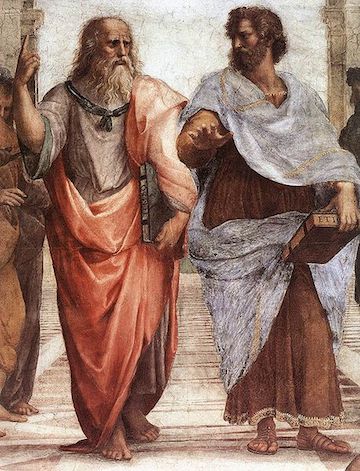In No. 82 of The Rambler (Tuesday, January 15, 1751), Samuel Johnson wrote: “So prevalent is the habit of comparing ourselves with others, while they remain within the reach of our passions, that books are seldom read with complete impartiality, but by those from whom the writer is placed at such a distance that his life or death is indifferent.” Who did Johnson intend by “those within the reach of our passions?” He implied that envy, hatred, adulation, greed, or pride can cloud our judgment when we compare ourselves to those with whom we interact.
The vice of envy, in particular, is more frequent among us than we generally realize. It is more damaging than greed, a distant competitor. Envy is quite present in academia, where the competition is of a spiritual or intellectual nature. But in this regard, the culture of the modern media might give it a run for its money.
Some economists, indeed, have considered envy to be a major factor in economic relations, more so than greed. Issues revolving around poverty in particular are often more due to envy than greed. Efforts to deal with the poor almost always fail because they assume that the issue of why the poor are poor is one of greed and not one of envy.
Greed is the vice of wanting material goods out of proportion to our real needs and capacities. Since money enables us to buy almost anything, we can make it our end. We think that this accumulation (or lack) of wealth is what happiness is all about. We associate greed mostly with the rich, but it can also be a vice prevalent among the poor, even the very poor.
Envy, on the other hand, is more spiritual. It consists in honors and glory. We do not praise what should be praised in others. We find fault with the excellence or performance of other people because, well, we hate their guts. We choose not freely to give credit where or in what excellence it is manifest. We do not like what we see when we “compare ourselves with others.” The vice of Judas might well have been greed, but that of the Pharisees was more certainly that of envy. To give honor and praise where they are due is much more difficult and much more important than in giving or returning money where it is due.

The fact is that I read neither Plato nor Aristotle “impartially,” even though they died considerably before my time. To be educated, even today, especially today, one has to take a stand with regard to Plato and Aristotle. Yet if that affirmation were true, all universities would insist that those matriculating in them read Plato and Aristotle. They don’t.
Those who know Plato and Aristotle are often envied with a passion verging on hatred. These ancient gentlemen stand for the truth. They make it clear. Our civilization is built, as I like to say, on the Socratic proposition that “It is never right to do wrong.” No statement is more hated in a relativist world. None is more envied by those who refuse to admit its truth. They have no other choice.
Yet, what does it mean to “read a book with complete impartiality”? It means that we can read the book without our protective mind interfering to prevent us from admitting the truth of what opposes what we want to do. Our society is full of a hatred rooted in envy, in the refusal to acknowledge the truth of our being. We are thus in a revolutionary situation, something similar to what Burke described in his Reflections on the Revolution in France. We have now freely chosen principles of polity that deny elements of goodness in our being. We do not bind ourselves by what is. We withhold praise from any truth that we choose not to live by.
The anti-hate laws that now prevail in Canada, Britain, and this country are themselves rooted in an envy and hatred of any truth that contradicts current established ideology. Freedom of speech, whose root justification was the obligation to speak and listen to the truth, has become an instrument to exclude any consideration of truths that conflict with what we want – as we politically will it.
We are now far enough away from Scripture and the classical authors whereby we might objectively consider them. But it has not turned out this way. Why? I think it is because the articulation of the truth requires these two sources to see it. If our “passions” do not allow us to admit their truth, we end up hating it because we cannot but envy its existence. The refusal to praise what is true and good is increasingly the ethos of our culture.
*Image: Plato and Aristotle (detail) from The School of Athens by Raphael, 1509















